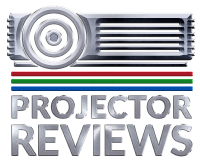- JVC DLA-RS20 Projector Review
- JVC DLA-RS20 Projector - Special Features
- JVC DLA-RS20 Physical Tour
- JVC DLA-RS20 Physical Tour2
- JVC DLA-RS20 Projector - Image Quality
- JVC DLA-RS20 Projector - Image Quality2
- JVC DLA-RS20 Projector - Image Quality3
- JVC DLA-RS20 Projector - Image Quality4
- JVC DLA-RS20 Projector - Image Quality5
- JVC DLA-RS20 Projector - Image Quality6
- JVC DLA-RS20 Projector - Image Quality7
- JVC DLA-RS20 Projector - Image Quality8
- JVC DLA-RS20 Projector - Image Quality9
- JVC DLA-RS20 - Performance
- JVC DLA-RS20 - Performance2
- JVC DLA-RS20 - Performance3
- JVC DLA-RS20 - Performance4
- JVC DLA-RS20 Projector Calibration and Settings
- JVC DLA-RS20 Projector Calibration and Settings2
- JVC DLA-RS20 Projector Calibration and Settings3
- JVC DLA-RS20 - Projector Screens
- JVC DLA-RS20 - Competitors
- JVC DLA-RS20 - Competitors2
- JVC DLA-RS20 - Competitors3
- JVC DLA-RS20 - Competitors4
- JVC DLA-RS20 - Competitors5
- JVC DLA-RS20 - Competitors6
- JVC DLA-RS20 - Competitors7
- JVC DLA-RS20 Projector - Warranty
- JVC DLA-RS20 - Review Summary
- JVC DLA-RS20 - Review Summary2
- JVC DLA-RS20 Projector: Pros, Cons, and Typical Capabilities
- JVC DLA-RS20 Projector Specifications
- Home
- All Reviews
- By Category
- By Manufacturer
- Best Projectors
- Best Projectors By Category
- Best Projectors On Amazon
- Best 4K Projectors
- Best Ultra Short Throw Projectors
- Best Laser TVs
- Best Gaming Projectors
- Best Home Theater Projectors
- Best Projectors Under $1,000
- Best Projectors Under $500
- Best Portable Projectors
- Best Outdoor Projectors
- Best Bright Budget-Friendly Outdoor Projectors
- Best Battery Powered Outdoor Projectors
- Best Outdoor Projection Screens
- Industry News
- Reports
- Projector Manufacturers
- Manufacturer Terminology
- Manufacturers
- Recent Articles
- Custom Integration
- Projection Terms
- Projector Manufacturers Categories
- Videos
- Blog
Close
Menu
- All Reviews
- By Category
- By Manufacturer
- Best Projectors By Category
- Best Projectors On Amazon
- Best 4K Projectors
- Best Ultra Short Throw Projectors
- Best Laser TVs
- Best Gaming Projectors
- Best Home Theater Projectors
- Best Projectors Under $1,000
- Best Projectors Under $500
- Best Portable Projectors
- Best Outdoor Projectors
- Best Bright Budget-Friendly Outdoor Projectors
- Best Battery Powered Outdoor Projectors
- Best Outdoor Projection Screens
- Latest News
- Reports & Guides
- Manufacturers
- Articles
- Custom Integration
- Projection Terms
- Blog
close



